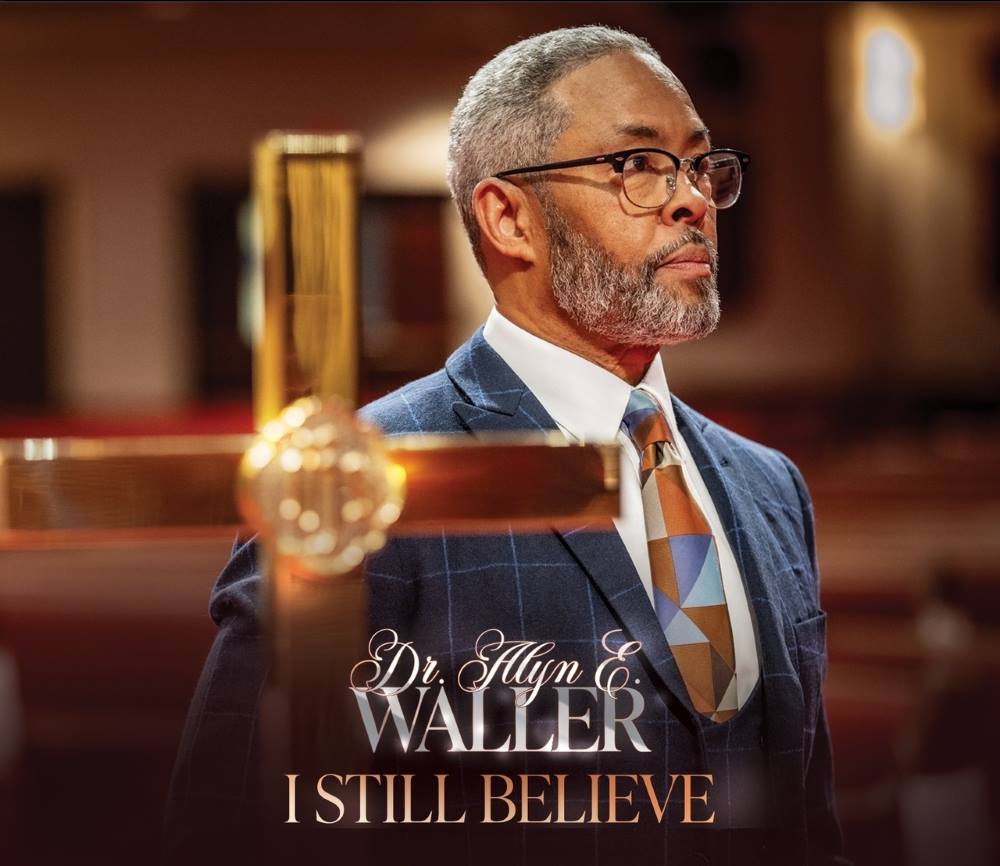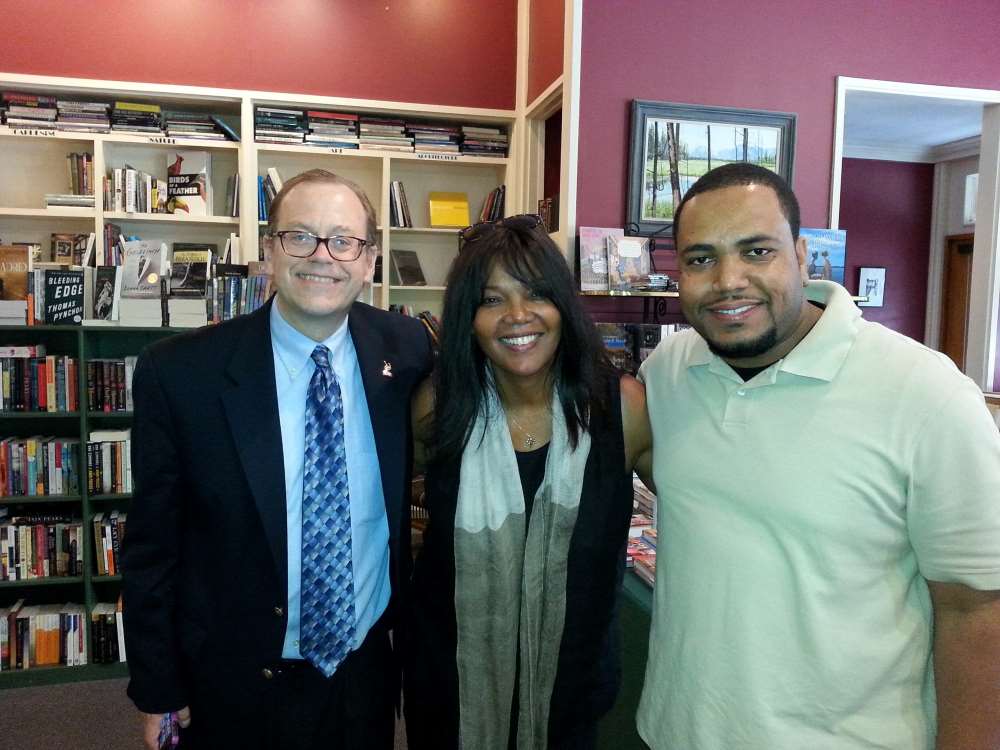Gospel Festival to honor sounds and work of James Cleveland
By Aaron Cohen
Special to the Tribune
Published May 28, 2006
When Aretha Franklin set out to make gospel history, she knew who to call. In 1972 the soul legend returned to her devotional beginnings to record what would become a landmark crossover album, “Amazing Grace” (Atlantic). Although the soaring lead voice was certainly hers, the choir director, main pianist and secondary vocalist was Franklin’s longtime friend, Rev. James Cleveland.
Years later, in Franklin’s memoirs (“Aretha: From These Roots”), she calls him “a gospel genius” and adds, “no one could put together a choir like James Cleveland.”
For most musicians such praise and a record such as “Amazing Grace” would have defined a career. For Cleveland, it was just another day at the office.
This year’s Chicago Gospel Festival includes a memorial tribute to Cleveland as his rough baritone voice and extensive work behind the scenes transformed the music. As a songwriter, he penned hundreds of church standards. Major singers, such as Franklin and Marion Williams, excelled when they collaborated with him. And it was Cleveland who made rigorously organized choirs the focus of popular gospel performance.
But for all that Cleveland’s life’s work has accomplished, his death in 1991 of AIDS-related complications still raises a stony silence among his colleagues in the church. As Detroit gospel pianist Herbert Pickard said, “It’s one of those unwritten things that you know, but you don’t speak of it.”
“He was the greatest gospel singer I ever heard,” said Pastor Walter Butts, who is participating in the tribute. “And he wrote the most powerful songs for gospel. The arrangements call you to shout, rejoice, laugh — they had all the different elements.”
Well-nurtured
Gospel’s elements surrounded Cleveland when he was growing up on Chicago’s South Side. Born in 1932, he jumped at numerous opportunities to study under an early generation of gospel creators who flourished in his neighborhood. He sang soprano at the historic Pilgrim Baptist Church when the hugely influential Thomas A. Dorsey was musical director. Cleveland was also drawn to the classically trained pianist Roberta Martin, even though his family could not afford the instrument.
As Cleveland grew, his voice inevitably deepened. Anthony Heilbut, author of the definitive study, “The Gospel Sound,” says that his vocals “were not conventionally beautiful, but so expressive and so rugged, nobody cared.” A key inspiration for Cleveland was the rhythmically forceful baritone, Eugene Smith.
The admiration was mutual. Smith — who still performs at age 85 — marvels that with Cleveland’s “delivery, narration and presentation, he was quite a star.”
At first, Cleveland worked diligently behind gospel’s small-group star vocalists. He wrote for the Roberta Martin Singers and his arrangements fueled Albertina Walker’s group, The Caravans. Herbert Pickard says that what made Cleveland’s songs, such as “Grace Is Sufficient,” so popular was their simplicity.
“People could jump on them and sing them as soon as they first heard them,” Pickard said. “They had that kind of charm.”
Sometimes these songs reached audiences in ways that Cleveland did not anticipate. At Chicago’s Chess studios, Cleveland’s “I Had a Talk With My God Last Night” got reconfigured as an R&B hit for Mitty Collier (“I Had A Talk With My Man Last Night”). But Cleveland was clever enough to reverse such secularization as he turned Gladys Knight’s “Best Thing That Ever Happened To Me” into “Jesus Was The Best Thing To Ever Happen To Me.”
In the 1950s, Cleveland moved to Detroit and for a while lived with the prominent minister, C. L. Franklin. He taught Franklin’s daughter, Aretha, the strong bluesy piano chords that formed the bedrock of his own music. Equally important was that around this time, Cleveland began his intensive work with choirs as part of The Voices of Tabernacle.
“James disciplined the choirs into sleeker versions of the congregations,” Heilbut said. “He placed much more emphasis on harmony and it was his boldest conception that choir soloists could be as professional as the great lead singers of the smaller groups.”
Cleveland’s musical vision for choirs can be heard on two of his best albums: “James Cleveland Sings With the World’s Greatest Choirs” and “James Cleveland and the Angelic Choir, Volume 3” (both on Savoy). Gospel’s familiar call-and-response is wrung through surprising tempo shifts. He also led these large groups through amazing octave leaps on such songs as “Peace Be Still.” Sometimes the choir’s contribution is more subtle: On “Christ the Redeemer” the voices add quietly eerie tension to the background of his haunting narration of the crucifixion and resurrection.
“One time, James Baldwin told me that just the way Cleveland sings the word `master’ is terrifying,” Heilbut said.
Along with professionalizing the choirs, Cleveland personally mentored their young musicians, such as keyboardist Billy Preston. After he moved to Los Angeles and began leading the Southern California Community Choir, Cleveland founded the Gospel Music Workshop of America in 1968. Education is still the forefront of the workshop’s mission.
“A mantra that James always used was, `Everybody is somebody,'” Butts said. “That’s what the workshop is about — developing upcoming artists. And he would make even the worst singers feel good and encouraged.”
Had a `killer instinct’
Which doesn’t mean that Cleveland wasn’t competitive when he was onstage.
“He was a lot of fun to be around, but James had that killer instinct,” Pickard said. “If it was one of those dry nights and he didn’t get the house, he would be mad at all the musicians.”
Pickard adds that Cleveland was competitive offstage too.
“I remember that James loved to play cards,” Pickard said. “And cheat, of course.”
Despite some observers’ claims that Cleveland’s voice was weakening during the 1970s and 1980s, he could still show off his strength in more ways than one. At the close of the 1982 performance film, “Gospel,” Cleveland playfully wrestles an overly excited young drummer off the stage. While some critics, such as Heilbut, lament the maudlin pop ballads that Cleveland went on to write (and earned him a shelf of Grammy Awards), others say he always stuck to the style of his Chicago roots.
“James Cleveland was traditional gospel when he started and carried traditional all throughout his lifetime,” Smith said. “And he was doing that type of music when he passed.”
While Cleveland’s passing from AIDS was shocking, Heilbut is adamant that the church’s hushed treatment of the disease has been equally disheartening.
“It was symptomatic of the church’s abdication of its responsibility that its greatest star should die of AIDS and so little was made of it,” Heilbut said. “There were so many gifted performers and choir directors — perhaps a whole generation — killed by the virus.”
What everyone does acknowledge is that Cleveland’s legacy lives on not only in his numerous recordings and hundreds of compositions, but also through the ongoing generations of musicians who are developing their art through the Gospel Music Workshop.
“Singers and choirs have a forum where they can exchange ideas and dream their dreams together,” Pickard said. “That was James’ plan.”
———-
“The James Cleveland Tribute” featuring Pastor Walter Butts, Pastor Chris Harris and others is at 6:40 p.m. Sunday, June 4, at the Jay Pritzker Pavilion, Millennium Park, as part of the Chicago Gospel Festival. Admission is free. Phone: 312-744-3315. Web: cityofchicago.org/specialevents.
One Comment
Leave A Comment
Written by : Bob Marovich
Bob Marovich is a gospel music historian, author, and radio host. Founder of Journal of Gospel Music blog (formally The Black Gospel Blog) and producer of the Gospel Memories Radio Show.










 Visit Today : 10
Visit Today : 10 This Month : 223
This Month : 223
my uncle charles folds was friends with james cleveland and they recorded songs both belong to the gwa both was great men both left a great mark in this world and my life and will be missed